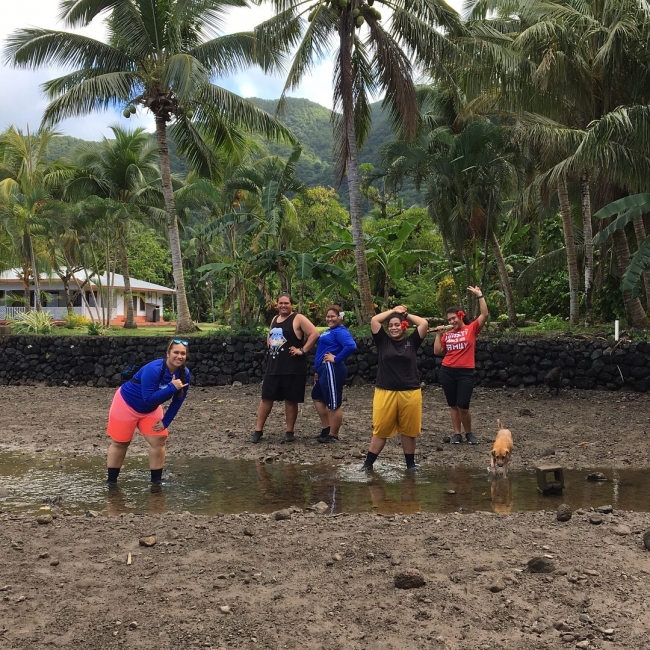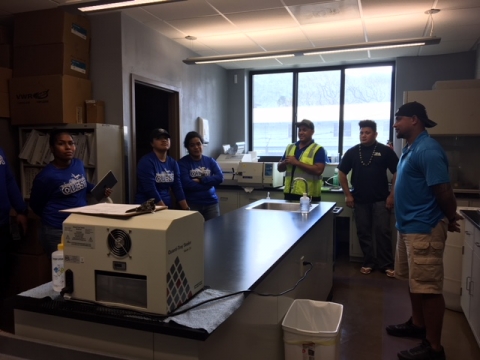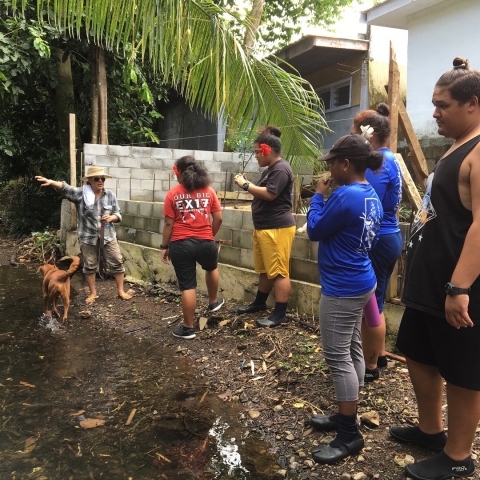We continue to celebrate the ocean as part of National Ocean Month! A healthy ocean starts with us. Learn how student leaders in American Samoa interned as part of a microplastics research project to protect ocean health.
Today’s students are tomorrow’s leaders. Opportunities to participate in hands-on STEM (science, technology, engineering, and math) activities can help build capacity in and interest around future careers in those fields. One of the goals of a recent project to conduct screening-level ecological risk assessment for microplastics in seafood in American Samoa engaged college students to do just that.
Locally sourced seafood is particularly important for island communities as they depend on the ocean for food and economic opportunities. This connects the health of the marine environment with overall public health. Such is the case in American Samoa, where local seafood is regularly consumed and where marine debris, including microplastics, has been identified as a priority pollutant. In an effort to better understand the impacts of microplastics on the marine environment and potential impacts to humans, Arizona State University (ASU), in partnership with the American Samoa Environmental Protection Agency and the Department of Wildlife and Marine Resources, and with the support of a NOAA Marine Debris Program research grant, is working to collect and analyze microplastics and contaminants in water, sediment, and bivalve samples on the island of Tutuila.
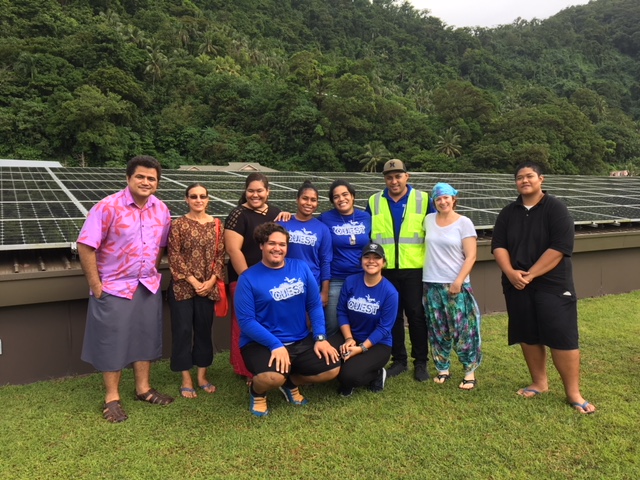
To implement this project, researchers enlisted the help of American Samoa Community College (ASCC) students. “Involving the next generation is very important as they are the next environmental stewards and will be future leaders; their involvement is crucial to long term sustainability outcomes,” shared Beth Polidoro, Associate Professor of Environmental Chemistry and Toxicology in the School of Mathematics and Natural Sciences, and the Associate Director of Research in the Center for Biodiversity Outcomes at ASU. In order to support and encourage STEM education and training opportunities on the island, eight ASCC students participated in an eight-week internship program.
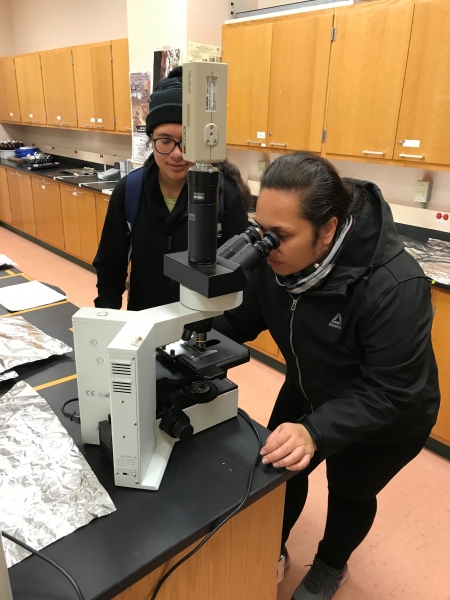
Through their internship they learned how to conduct environmental sampling and marine debris surveys, and learned field techniques, such as microplastic flotations. Microplastic flotations is a process of separating microplastics from water, sediments, and biota. Students also identified particular fish by both their Samoan and scientific names, and performed fish dissections and prepped organisms for lab analysis. Through regular conversation and consistent engagement, students helped to build relationships in the communities where samples were collected. Furthermore, the students were encouraged to discuss their internship work with their families, furthering awareness of the project and issue of marine debris. “The students were positive and a joy to work with. I learned as much from them as they did from me,” shared Tiffany Lewis, an ASU PhD student who worked with the interns in American Samoa.
After the eight-week program concluded, three interns were chosen to continue working with the microplastics and contaminants samples they collected. They traveled to ASU for a 10-day trip to learn laboratory techniques and about different programs at the university.
The final results of the project are not yet available, however it is hoped that these results will help to prioritize actions that minimize impacts to human health. The project will conclude with a multi-day workshop, during which project participants will spend some time in the communities where samples were collected and discuss project results with community members. “It is important to make the connection between environmental health and the public’s health and wealth,” noted Professor Poildoro. “With this information and data, the community, including these students, can create their own solutions.” During the workshop, students will also have the opportunity to present and share their program experiences with participating agencies and groups.
Project partners would like to see the ASCC internship project component continue into the future. “We hope that educational experiences such as these will help inspire future career paths and personal choices that support environmental stewardship in concert with Fa‘a Samoa (the traditional Samoan way of life) in beautiful American Samoa,” shared Lewis. It is their hope that a consistent internship program would continue to provide opportunities for hands-on marine science and toxicology education. It is through experiential learning opportunities, like this, students, and ultimately communities, can increase local capacity and become tomorrow’s environmental stewards and leaders.

